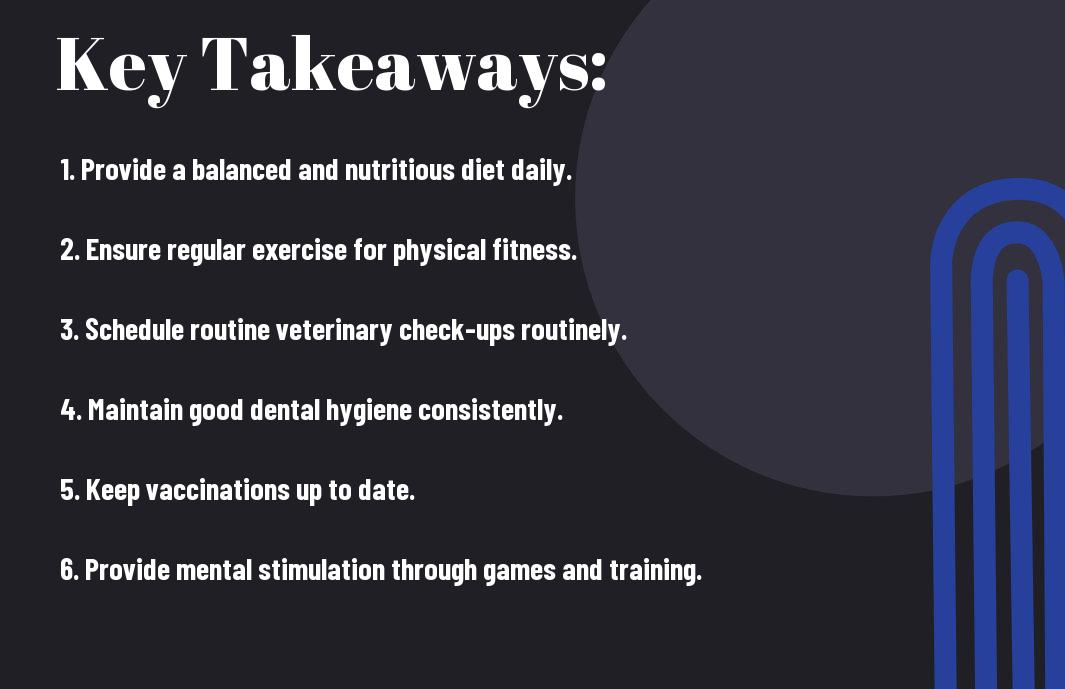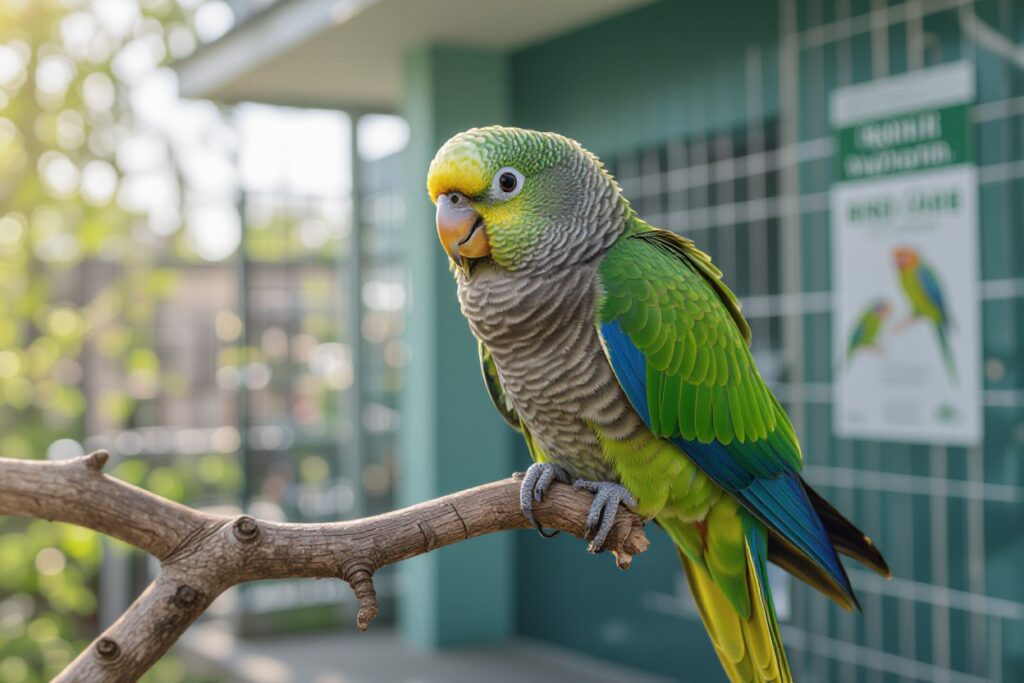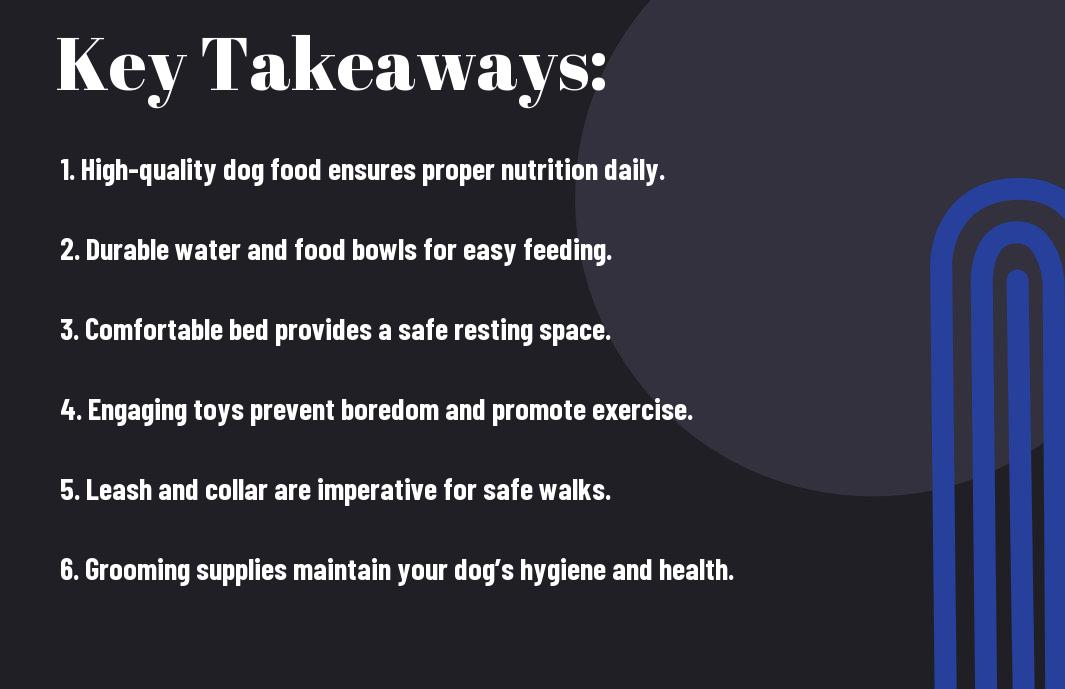Many bird owners find themselves frustrated by their feathered friends’ screaming behaviors, which can lead to stress for both you and your pet. Understanding the causes of this vocalization is crucial, as it can stem from several reasons including boredom, hunger, or environmental changes. In this blog post, we will explore effective solutions to help you manage your bird’s noise, ensuring a more peaceful home while keeping your pet happy and healthy. Dive in, and let’s restore harmony in your abode!
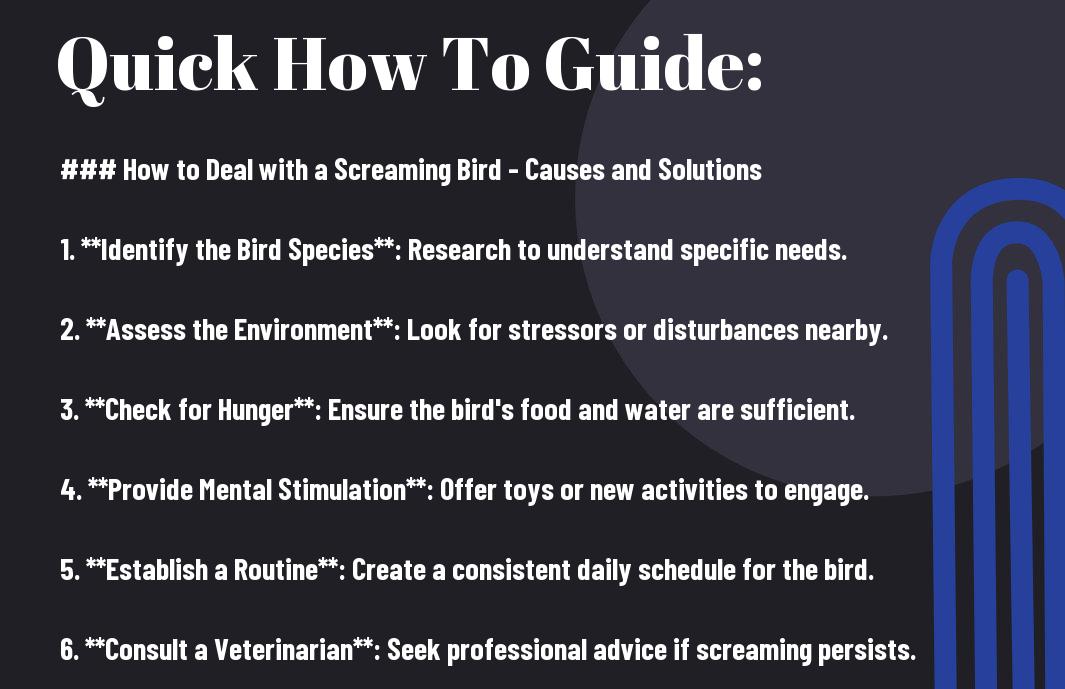
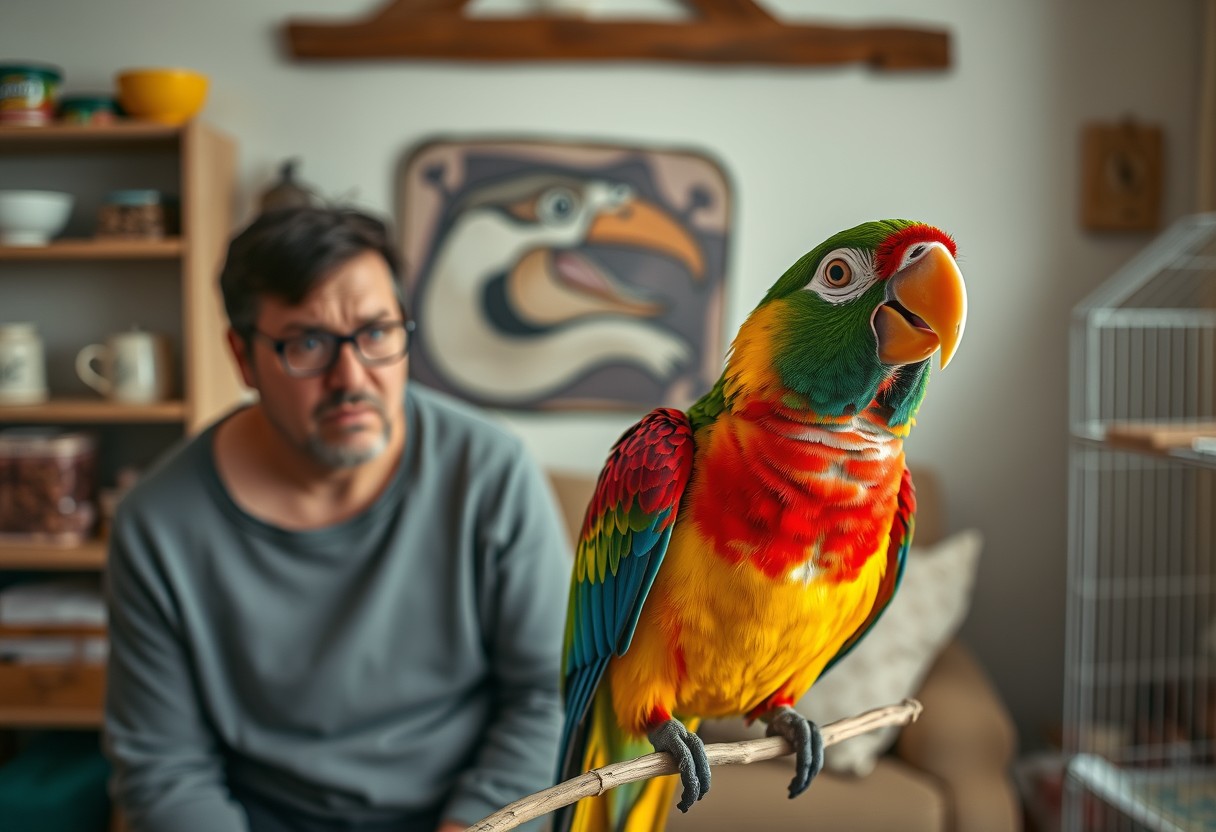
Understanding the Causes of Screaming
Your bird’s screaming can often be puzzling and distressing. To effectively address this behavior, it is crucial to understand the underlying causes. Birds are communicative creatures and can express a wide range of emotions and needs through vocalization. By delving into the factors contributing to their screaming, you can better manage and potentially reduce this behavior in your feathered friend.
Natural Instincts and Communication
Communication is a core element of avian behavior. In the wild, birds use vocalizations to convey messages to their flock, warn of potential predators, or establish territory. Thus, your bird may scream as a natural instinct to communicate with you or other birds, expressing excitement, discomfort, or a desire for attention. Understanding this instinctive behavior is key to addressing the issue, as it signals a need that may require your attention.
Environmental Triggers
With a variety of environmental factors influencing your bird’s vocal behavior, it’s necessary to create a calm and stable habitat. Sudden changes in the environment—such as loud noises, new pets, or unfamiliar visitors—can trigger your bird to scream as a response to stress or fear. Pay close attention to any external stimuli that might be causing anxiety or agitation, as these can significantly impact your bird’s well-being.
Environmental factors can also include the layout of your living space, the availability of perches, and toys. A dull or unstimulating environment may lead to boredom, prompting your bird to vocalize more fervently. Ensuring that your pet has an enriching space, filled with stimulating activities, can help mitigate unnecessary screaming.
Socialization and Attention-Seeking Behavior
One key aspect of understanding your bird’s screaming behavior is recognizing its link to socialization and the need for attention. Birds are social creatures that thrive on interaction with their human companions. If your bird feels neglected, it might resort to screaming as a means to call for your attention. This behavior is often more pronounced when you are busy or preoccupied, leading your pet to vocalize louder to attract your focus.
Socialization is crucial for a bird’s development and emotional health. When birds lack adequate interaction, they may feel lonely, leading to increased vocalization as they seek companionship and connection. Make sure to schedule dedicated time each day for bonding and engagement, as this can greatly reduce their need to scream for attention.
How to Identify Specific Types of Screaming
Now, identifying the specific type of screaming your bird exhibits can greatly aid in resolving the issue. Different contexts dictate the sounds birds make, allowing you to better interpret their needs and emotional states. Here are some crucial indicators to help you recognize the type of screaming:
| Type of Screaming | Indicators |
|---|---|
| Distress Calls | High-pitched, frantic sounds often indicating fear or discomfort. |
| Playful Screaming | Louder, melodious sounds that suggest your bird is in a good mood. |
| Attention-Seeking Screams | Rapid, repetitive calls aimed at getting your attention. |
| Mating Calls | Short, sharp whistles or coos signaling readiness to mate. |
| Pain Calls | Sudden, shrill sounds that may indicate injury or health issues. |
Distress Calls vs. Playful Screaming
Assuming your bird exhibits frequent screaming, it’s important to discern whether these sounds stem from distress or playful antics. Distress calls typically present as frantic and high-pitched, which can indicate that your bird is experiencing fear, anxiety, or discomfort. Your intervention is crucial in these cases to alleviate the stressors causing these sounds.
On the other hand, playful screaming is often characterized by loud and joyous noises that suggest your bird is in a relaxed and fun-loving mood. This type of screaming is usually intermittent and can include whistles or playful squawks. By understanding these distinctions, you can take appropriate actions to either comfort your bird or join in on the fun by engaging their playful spirit.
Vocalization Patterns and Their Meanings
With every scream, there may be underlying meanings unique to your bird’s vocalizations. Your pet bird’s vocal behavior may reveal whether it’s trying to communicate pain, boredom, or a desire for companionship. Observing the context—the time of day, the setting, or any changes in routine—can help you ascertain the reasons behind their vocal behavior. For instance, a sudden increase in volume might suggest your bird is seeking attention or feeling unwell.
Recognizing the specific vocalization patterns can help you respond adequately to your bird’s needs. If you notice a pattern where your bird screams during certain activities—or lacks stimulation—it might be time to introduce new toys or change its environment. Keep in mind that not all vocalizations signify distress; some birds naturally have louder temperaments, liking to showcase their robust personalities through enthusiastic sounds.
Types of vocalizations can range from delightful chatter that brings joy to your home, to alarming howls indicating distress. You should focus on understanding the context of your bird’s calls to identify whether they are communicating something urgent, such as feeling threatened, or expressing happiness and excitement. By observing your bird’s behavior closely, you can take appropriate measures to ensure their needs are met.
Any misunderstanding of these sounds may lead to unnecessary stress for both you and your feathered companion. Therefore, it’s pivotal to stay attentive and respond accordingly to foster a happy and healthy environment for your bird.
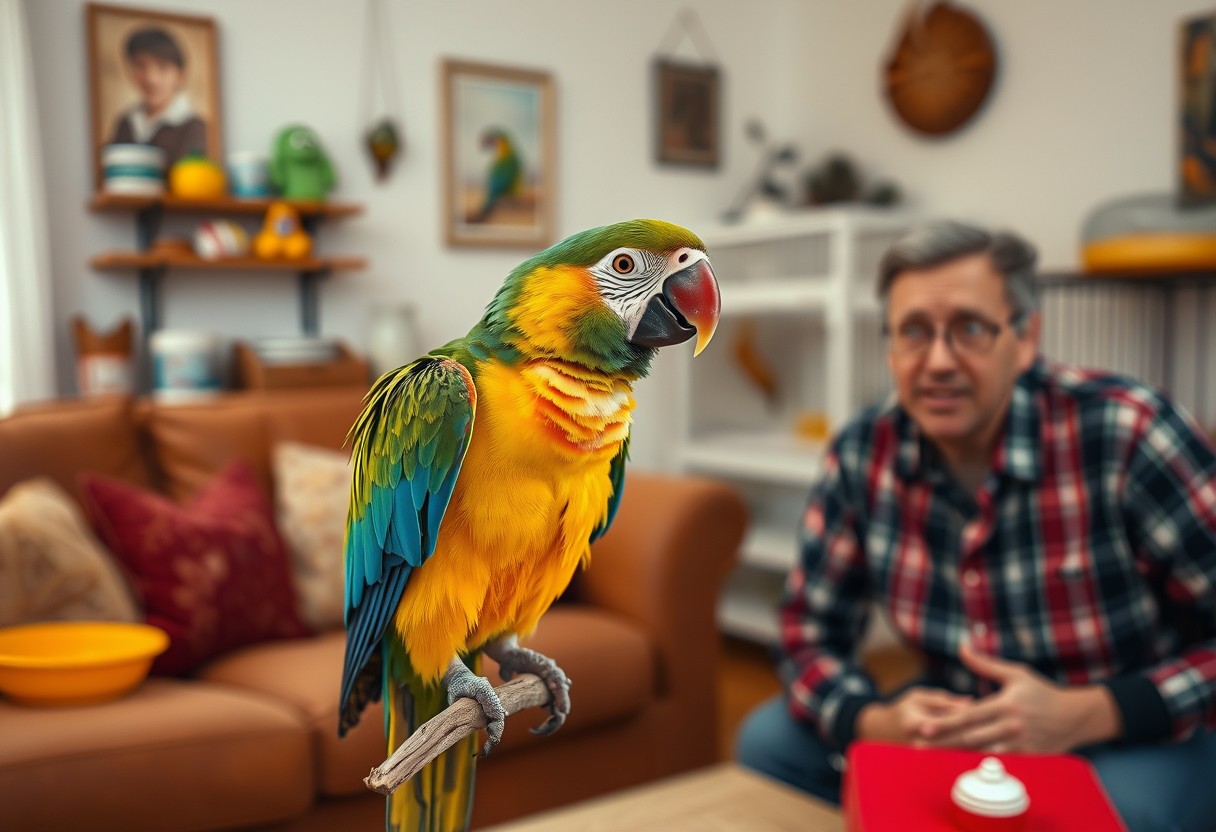
Effective Tips for Managing a Screaming Bird
To effectively manage your screaming bird, it’s important to address the underlying causes and implement practical solutions. Here are some tips that can help you maintain a peaceful environment in your home:
- Provide a stimulating environment
- Utilize training techniques
- Ensure proper diet and health
- Establish a routine
- Identify stressors
Thou will be better equipped to handle your bird’s vocalizations when you understand the potential triggers and solutions.
Providing a Stimulating Environment
Tips for creating a more enriching surroundings for your bird include offering a variety of toys, activities, and social interactions. Birds are naturally curious and intelligent creatures; therefore, engaging their minds with different challenges can help reduce boredom, which is a common cause of excessive screaming. Rotate their toys regularly to keep things fresh and introduce novel items to stimulate their interest.
You should also consider the placement of your bird’s cage. Positioning it where it can see and hear daily household activities can help your bird feel more included. A stimulating environment aids in mental stimulation, ultimately leading to a reduction in unwanted vocalizations.
Training Techniques to Discourage Screaming
While dealing with a screaming bird, it’s critical to employ training techniques that discourage this behavior. Start by understanding what induces your bird to scream; often, it’s a reaction to boredom or a call for attention. Use positive reinforcement to reward quiet behavior, such as praise or treats. Whenever you notice your bird being calm, shower it with attention to reinforce this particular behavior. Over time, your bird will begin to associate silence with positive outcomes.
Techniques such as using a gentle rolling method can also be beneficial. When your bird screams, calmly place it in a designated area where it can settle down before returning it once the vocalizations cease. Remaining consistent with these training measures will ensure your bird learns over time to minimize its loud outbursts.
Ensuring Proper Diet and Health
To ensure your bird maintains a balanced system that contributes to overall well-being, you must focus on a proper diet and regular health checks. An imbalanced diet can lead to irritability in birds, resulting in more frequent screaming. Incorporating a diet of high-quality pellets, fresh vegetables, and fruits can support not only their physical health but also their mental stability. Always consult your vet for dietary specifics tailored to your bird’s species and behavior.
Regular health screenings are equally vital; underlying medical issues can often manifest as increased vocalization. Always pay attention to any changes in your bird’s eating habits, energy levels, and behavior, as these can all be indicators of health concerns. Do not forget, a healthy bird is generally a happier and quieter bird.
Stimulating your bird’s environment, properly training them to discourage excessive vocalizations, and ensuring they adhere to a nutritious diet and regular health checks are key components to managing a screaming bird. Addressing these areas will not only enhance your bird’s quality of life but also contribute to a tranquil home setting.
Long-Term Solutions for a Peaceful Home
All bird owners know that a happy bird creates a harmonious home. To effectively address the issue of a screaming bird, implementing long-term solutions can drastically improve the atmosphere of your living space. It is crucial to understand that birds are social creatures that thrive on routines and mental stimulation. When you actively engage with your feathered friend, you can provide a balanced environment that meets their needs and mitigates unwanted vocalizations.
Creating a Routine
You should establish a consistent daily routine for your bird that includes designated times for feeding, play, and quiet time. This structure can significantly reduce anxiety in your pet, as they will know what to expect throughout the day. Consider incorporating interactive toys and varying activities during playtime to keep your bird engaged. The predictability of a well-defined schedule can diminish the tendency to scream, as your bird will feel more secure in its environment.
Furthermore, try to schedule your interactions around your bird’s most active times, typically in the morning and late afternoon. Ensuring you dedicate quality time during these peak periods will help satisfy your bird’s social needs and provide opportunities for bonding. Over time, a well-planned routine will create a foundation of trust and comfort, leading to a more peaceful existence in your home.
Understanding Your Bird’s Needs
For effective communication with your bird, it is vital to understand its unique needs. Each species has different requirements in terms of socialization, diet, and environment. By recognizing what your bird needs, you can foster an atmosphere that caters to these desires. Insufficient mental and physical stimulation can lead to frustration and, consequently, screaming. Hence, pay close attention to your pet’s behavior, and be open to adjustments in your care routine to ensure its needs are met.
Birds are intelligent creatures that possess their own personalities and preferences. While each bird is unique, they all thrive in environments that stimulate their minds and allow for social interaction. Providing your bird with a variety of toys, activities, and opportunities for socialization is crucial to preventing screaming as a form of attention-seeking behavior. Additionally, it is crucial to provide a quiet space wherein they can feel secure, allowing them the option to retreat when they become overwhelmed. Understanding these aspects will lead to a greater sense of well-being for your bird and a more peaceful atmosphere in your home.
Final Words
With this in mind, it’s crucial to understand the underlying causes of your bird’s screaming behavior. By observing your pet closely, you can identify whether their screams stem from boredom, hunger, attention-seeking, or stress. Once you’ve pinpointed the cause, you can implement appropriate solutions, such as enriching your bird’s environment, establishing a consistent routine, or addressing any sudden changes in their surroundings. Bear in mind, your bird is communicating with you, and it’s your responsibility to interpret these signals and respond accordingly.
Ultimately, managing your screaming bird requires patience, observation, and proactive measures. By creating a stimulating environment and fostering a strong bond with your feathered friend, you can reduce unwanted noise while ensuring their overall well-being. Taking action will not only improve your bird’s quality of life but also enhance the harmony of your home. Keep these strategies in mind, stay attentive, and enjoy the rewarding experience of caring for your vocal companion.
Q: What are the common causes of a bird screaming?
A: Birds may scream for several reasons, such as boredom, loneliness, or a desire for attention. They might be trying to communicate their needs or feelings, such as hunger or discomfort. Changes in their environment, such as loud noises or disruptions, can also trigger screaming as a form of stress or anxiety. Additionally, some species of birds are naturally more vocal than others, and their screams could simply be part of their normal behavior.
Q: How can I alleviate my bird’s screaming behavior?
A: To help reduce your bird’s screaming, first ensure it has plenty of mental stimulation and social interaction. Provide a variety of toys to keep them engaged and schedule regular playtime outside their cage. Training your bird through positive reinforcement can also help teach them quieter behaviors. Creating a structured daily routine can help them feel secure and less likely to scream out of anxiety or boredom. If the behavior continues, consider consulting an avian vet to rule out any underlying health issues or seek advice from a bird behavior specialist.
Q: When should I be concerned about my bird’s screaming?
A: If your bird’s screaming is excessive, lasts for long periods, or is accompanied by other signs of distress, such as feather plucking or changes in eating and drinking habits, it may be a cause for concern. It’s important to differentiate between normal vocalisation and signs of a deeper issue. If you suspect that the screaming is due to an emotional or physical problem, consult with an avian veterinarian. Monitoring your bird’s overall health and behavior is crucial to ensuring they are happy and well-adjusted.

